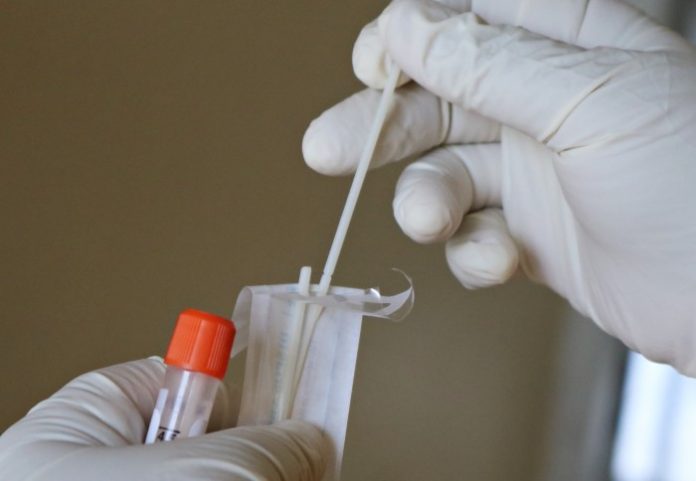An interim report from the largest community COVID-19 testing programme has found a high infection prevalence and that cases have continued to rise.
Results from swab tests carried out by more than 80,000 people out of a total of 150,000, taken between 18th and 26th September, show that infections have increased substantially across all age groups and areas of the country.
The research, led by Imperial College London, estimated that over 1 in 200 people across England have the SARS-CoV-2 virus, or 0.55% of the population, compared to 0.13% in the previous round of testing.
The biggest rise in cases was found in those aged over 65, which saw seven times as many cases as previously. A similar increase was found in those aged between 55-64. Young people continued to have the highest rates of infection, with 1 in 100 estimated to have the virus.
The reproduction (R) number decreased from 1.7 to 1.1 but with a wide possible range for the recent value of 0.7 to 1.5. This suggests that the rate of new infections has decreased, but an R above 1 would mean cases will continue to rise if current trends continue.
These findings from the REal-time Assessment of Community Transmission (REACT 1) programme are available in a pre-print report and will be submitted for peer-review.
Professor Paul Elliott, director of the REACT programme at Imperial, said: “While our latest findings show some early evidence that the growth of new cases may have slowed, suggesting efforts to control the infection are working, the prevalence of infection is the highest that we have recorded to date. This reinforces the need for protective measures to limit the spread of the disease and the public’s adherence to these, which will be vital to minimise further significant illness and loss of life from COVID-19.”
Growing coronavirus prevalence
The REACT 1 study is tracking current cases of COVID-19 in the community by testing more than 150,000 randomly-selected people each month over a two-week period. Volunteers take nose and throat swabs at home, which are then analysed in a laboratory by a technique called RT-PCR.
Out of 84,610 swabs analysed so far for this latest round of testing, 363 tested positive, giving an estimated prevalence of 0.55%. This means that across the entire population, an estimated 411,000 people have the virus that causes COVID-19.
Prevalence was highest in those aged 18-24 at 0.96%. In those aged 65 and above, prevalence increased 7-fold from 0.04% to 0.29% compared to the last report.
Prevalence increased in all parts of the country, with the North West remaining the highest at 0.86%. Cases also increased substantially in London, rising 5-fold from 0.10% to 0.49%. Similar to the previous report, Black and Asian people were found to be twice as likely to be infected compared to white people.
Professor Steven Riley, study author and Professor of Infectious Disease Dynamics at Imperial, said: “These findings highlight that the situation in England is fast-moving, and demonstrate the need for continued engagement from the public to prevent unnecessary hospitalisations and deaths. Our ongoing community testing programme is helping to ensure that the UK response is based on current, robust evidence.”
The final report and findings of all 150,000 volunteers tested between 18th September and 5th October will be published next week.
Tracking the progress of the pandemic
The REACT programme is a series of studies that are monitoring how the virus is spreading across the country. Commissioned by the Department of Health and Social Care, it is being carried out in partnership with Ipsos MORI and Imperial College Healthcare NHS Trust.
Kelly Beaver, Managing Director – Public Affairs at Ipsos MORI said: “The continuing support of the public by taking part in the study is something we remain immensely grateful for. The number of participants gives this study the robustness and thoroughness which marks it out as world-leading. Ipsos MORI would like to thank everyone who’s volunteered so far and those who will volunteer for further rounds of this study.”
A separate arm of the programme, REACT 2, is using antibody finger-prick tests to monitor past infections across England. The results of the first 100,000 people tested have already been announced and findings from the next round, involving another 100,000 people, are expected soon.








